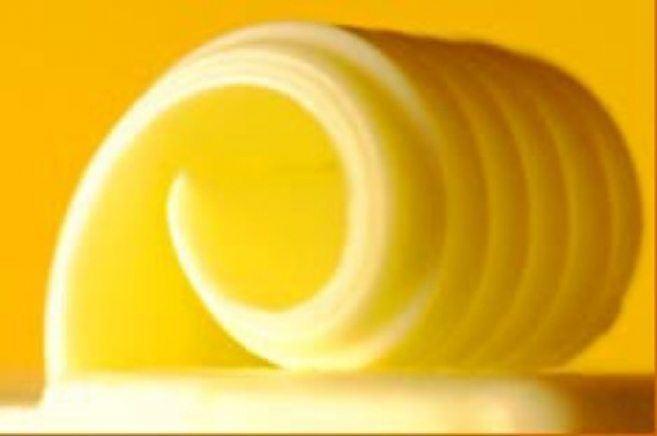Butter, the benefits and harms of which are fiercely debated by nutritionists, is a traditional and sought-after product on our table. Someone, having listened to the opinion of the WHO, completely abandoned or significantly limited its use. Others continue to spread rather than spread butter on their morning sandwich, guided by the latest statistics. According to them, butter, coupled with cholesterol, is a source of good libido, strong immunity and a beautiful figure. One thing is certain - the product has both significant positive and some negative sides. On whose side the advantage is, science is not yet known.
From the history
It is believed that the first manufacturers of the product were the ancient Jews. The proof of this is a reference to the Old Testament. According to other sources, oil first appeared in ancient India long before our era. By the way, even today in India, ghee is not only a popular, but even a medicinal product that is absorbed in large quantities.
In Russia, butter "divorced" in the 9th century, and its industrial production was organized in the 19th century. But only in the 20th century. The Institutes of Scientific Nutrition sounded the alarm. The cholesterol boom has swept across the planet - butter has become the enemy of the cardiovascular system and figure number one.
Studies began, laboratory examinations were carried out, but convincing arguments in favor of harm were never put forward. For any argument "against" there was immediately an opposite (scientific) opinion "for". Serious battles flared up, but the warring parties did not come to a consensus. Therefore, every citizen has the full right to his position on the sweet and creamy.
About the benefits of butter
The benefits (and harms) of butter are due to its composition. The chemical component of the product is a huge amount of vitamins A and E, the entire group B, D, PP. The oil contains about 150 fatty acids, of which at least 20 are essential. Among the minerals are potassium and calcium, magnesium, manganese, sodium, zinc and a number of others. Proteins with carbohydrates also enrich the composition of the product, the nutritional value of which is quite high - 700-800 kcal per 100 g.
The benefits of butter come from this balanced and varied composition. Vitamin A is necessary for vision, immunity, regenerative processes. Vitamin E is the health of our skin, hair and nails, the strength of the muscular system. Vitamin B - strong teeth and bones. There are no unnecessary and harmful “details” in the oil, even terrible cholesterol is an essential component of a number of reactions.
Few people know that cholesterol is a structural element of the cell membrane, is involved in the synthesis of certain digestive components and hormones. Its deficiency will invariably affect the state of reproductive function and sexual activity. The decrease in the amount of cholesterol consumed in Europe did not affect the statistics of the incidence of heart disease. But the rate of infertility has increased. Perhaps there is no direct connection between these phenomena - science has not said either "yes" or "no".
Without cholesterol, serotonin receptors do not function well, which means that a person is more likely to fall into a state of apathy or even depression. Is it because people who prefer a diet devoid of animal fats enjoy life less and are more aggressive towards the world around them? Butter, the benefits and harms of which are often revolved around the cholesterol issue, in view of the above data, becomes not at all an enemy, but a friend of a person.
Oil is a product that normalizes digestion, heals inflammation in the gastrointestinal tract, treats individual skin lesions, lung diseases (even tuberculosis), and has powerful antitumor properties. It is highly recommended for emaciated, debilitated, pregnant, lactating, children. To extract the maximum benefit, the oil should not be subjected to strong heat treatment. And when buying, you should pay attention to the packaging - foil is preferable to parchment.
Harm of butter

The harm of oil is a myth that is beneficial only to manufacturers of vegetable fats. As it turned out, the main argument - cholesterol - turned out to be an argument rather in favor. Excessive consumption of the product is not fraught with the risk of cardiovascular disease, but elementary obesity. Oil is a high-calorie product, but not dangerous.
Potential (but not proven) harm can be reduced by proportionally dividing the proportion of fat consumed. Love oil? Include fish and nuts in your diet. It is impossible to get fat from 30 g of butter, and the body does not need more. It is worth paying attention to the French - they love this product and use it daily. Cheese soup with a spoonful of melted butter is on the menu of almost everyone. At the same time, the quantitative indicator of heart attacks, obesity in this country is lower than that of the dietary English, for example.
The benefits and harms of butter depend on its composition, carefully read the labels. Salt, flavorings, dyes, emulsifiers are frequent inclusions of "modern" oil. Their harm is not mythical, but real. Natural and high-quality oil does not contain auxiliary components. Its fat content should always be in the range of 80% and above. Less fat raises questions.
In no case should you refuse oil, as well as abuse this product. Giving preference to spread or margarine is the wrong choice. The budget substitute is inferior to the original in terms of quality. Fatty acids are definitely beneficial. Milk fat among them is no less important "person". It is worth remembering at least that without it calcium is not absorbed.
Buy a quality product, store it correctly (in a ceramic oiler), eat in doses and regularly - and get the benefits. Ardent supporters of the opposite opinion may well devote their lives to laboratory research and demonstrate to the world their achievements in this field.



